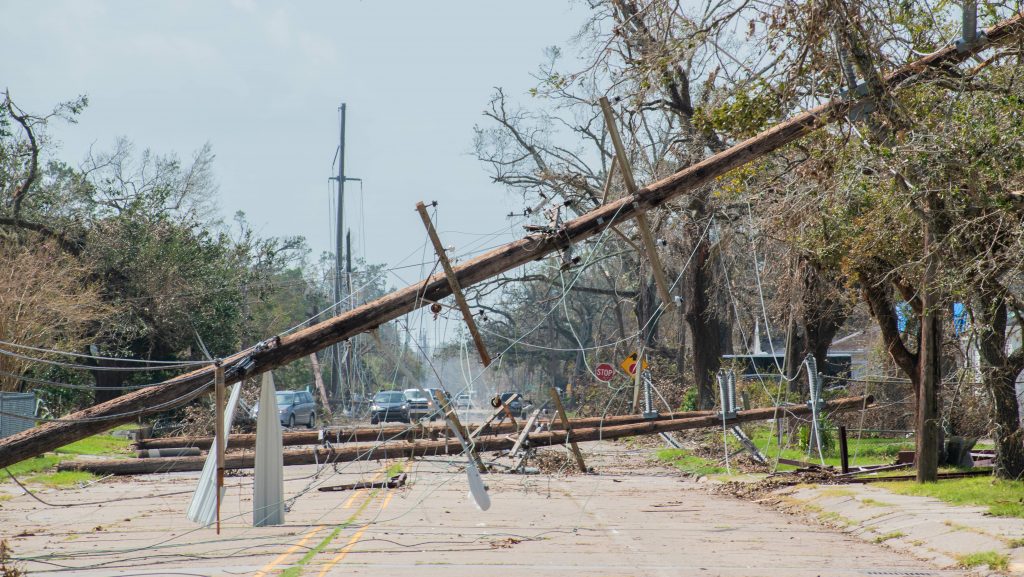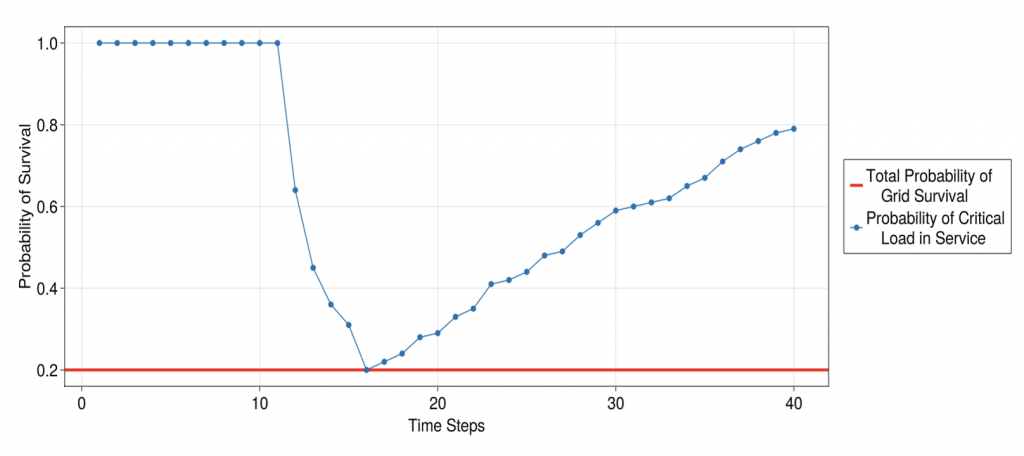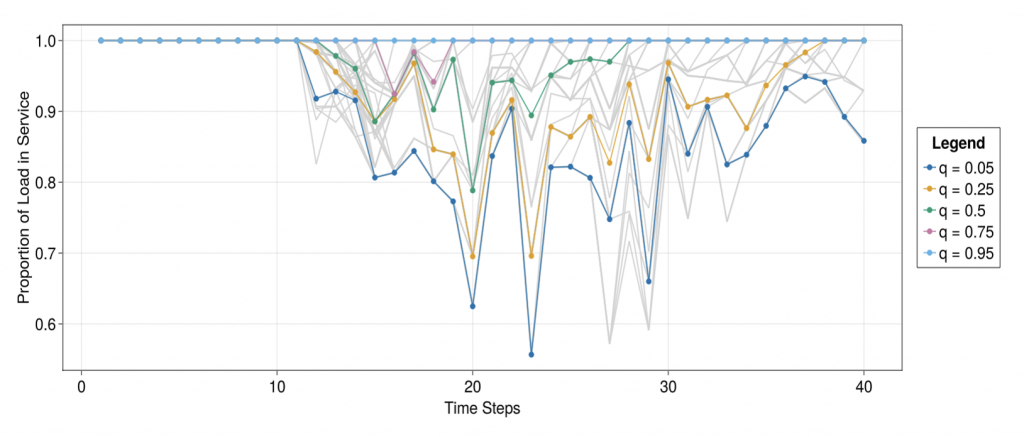Imagine you are taking a tube and suddenly it stops – everything goes dark.
Imagine you are in hospital and reliant on machines that suddenly run out of power.
It does not need a worst-case scenario to imagine the effect of a power outage. We even rely on electricity during our daily routine, e.g., to pay for our groceries, for the internet to communicate and work, for our stove to put a hot meal on the table for our children…
As the global demand for electricity continues to grow, ensuring the resilience of the power system has become a critical concern for utilities, governments, and other stakeholders. Power outages and disruptions can have far-reaching consequences.
The design of resilient power systems requires suitable technologies to assess their vulnerabilities and strengths, predict their reaction and identify necessary upgrades to improve resilience.
We at Tractebel are excited to take on these challenges and confident that our efforts will pay off in the form of stronger, more reliable power systems for our customers. In this blog post, I will outline how we will create power systems we can rely on – or better: that are resilient.
Shifting from Reliability to Resilience
In contrast to the past, the primary focus of grid planning is no longer just on the reliability of an uninterruptible power supply, but on resilience, i.e., the ability of a system to withstand, recover and learn from disruptions. This shift has been driven by:
- the increasing frequency and severity of natural disasters
- the threat of cyber attacks
- growing reliance of modern societies on electricity.
One key aspect of this shift has been significant economic and societal impacts. Another factor that has led to a greater emphasis on resilience is the recognition that traditional measures may not fully capture the nature of modern power systems. Distributed energy resources, such as solar panels and energy storage systems, introduce new challenges for power system operation and planning. To manage these, it is important to consider both resilience and reliability. In an increasingly uncertain world, reliable delivery of electricity must be guaranteed.

Potential Consequences of High Impact Events
When we look at power system resilience, we mainly consider high-impact, low-probability events:
- Extreme weather events
- Cyber-attacks
- Physical attacks like sabotage or terrorism on power system infrastructure
- Large equipment failures, such as a failed transformer or generator
Severe power outages caused by high-impact events can have serious consequences:
- Economic and financial losses
- Public safety risks
- Social disruption, because power outages can disrupt daily life and social activities that rely on electricity
- Environmental impacts, when power outages may result in the release of pollutants or other environmental impacts
- Loss of confidence in the power system
As these consequences can be significant and far-reaching, it is important that power systems are designed and managed with these events in mind.
What are the Possible Solutions?
There are several strategies that can be employed to enhance the resilience of a power system:
- Diversifying the generation mix
- Strengthening the transmission and distribution infrastructure
- Implementing robust cyber-security measures
- Developing contingency plans and emergency response protocols
- Encouraging the use of distributed energy resources, such as solar panels and batteries, to provide an alternative source.

Our analytical methodology and tools are suited to deal with the complexity of the task and to support the proper design and deployment of the above strategies. These tools can help to identify potential vulnerabilities and weaknesses in a power system and can be used to evaluate the effectiveness of different resilience improving measures.
Approaching Resilience with suitable Methods and Tools
One common method for analyzing the resilience of power systems is the simulation of numerous scenarios. Due to the stochastic nature of the task, we often support the analysis by both statistical methods and probabilistic studies. Efficient tools are therefore essential to deal with the computationally expensive simulations of resiliency issues.
While another important aspect of our work is the development of appropriate metrics for measuring resilience, it is important to choose appropriate metrics. For example, metrics such as system availability, restoration time, and energy not supplied may be relevant for evaluating the performance of a power system in the event of an outage.
Our Research on Power System Resilience
At Tractebel, we have long been actively engaged in researching and developing solutions to improve the resilience of power systems. One of the key strategies our experts are pursuing is the development of novel methodologies and sophisticated software tools that can better analyze, predict and respond to disruptions.
In 2022, we developed a software called reXplan. One of its key strengths is its ability to accurately assess the impact of different types of extreme weather events on power system infrastructures. Be it a hurricane or heatwave, the software can provide a detailed analysis of the likely impact on power systems and identify the most vulnerable areas. ReXplan can also be used to compare different planning strategies. Users can input different scenarios to test the robustness of different strategies and identify the most effective approaches.
To cope with the stochastic nature of the resiliency analysis, the algorithms are based on sequential Monte Carlo and optimal power flow analysis, which allow users to accurately assess the likelihood and impact of different types of disruptive events on the power system.
The Monte Carlo analysis is a statistical method that we use to simulate different scenarios. By running a large number of simulations with different input parameters, it is possible to evaluate the probability of different outcomes and identify potential vulnerabilities in the system.
Incidentally, this method is named after the casino in Monaco, where the method was first used to evaluate the performance of various gambling games.
An example of the simulation results is illustrated below.


The software is currently under test. Further improvements are planned for the year 2023, such as the capability of modelling probability density functions of hazard events with stratified sampling, increasing the accuracy of the results in the analysis of a large ranges of event intensities.
Future Grids need Resilience
Research on power system resilience is a critical priority for Tractebel. We understand that reliable and robust power systems are essential for the smooth functioning of society. We are committed to working with utilities and other stakeholders to find innovative solutions concerning the enhancement of power system reliability and stability.
Our reXplan tool will be essential for our company, utilities and other stakeholders looking to assess the impact of extreme events on power system infrastructures. A range of new features and enhancements are to follow.
In addition to our research on power system resilience, we are actively involved in a range of important international projects in this field. These include the analysis of public and private electrical transmission and distribution systems, the exploration of micro grids, storage, distributed energy resources, and innovative technologies to improve the reliability, resilience and stability of power systems.
Do you want to know more on our research or projects? Feel free to leave a comment below to reach out to us with any questions you have about our work.
